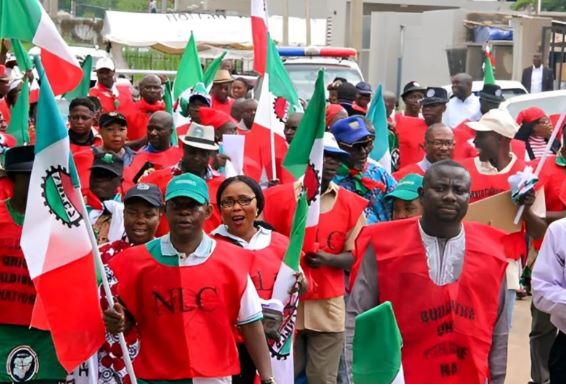
The organised labour in a motion they filed through their lawyer, Femi Falana SAN averred that the case against it is liable to be struck out for want of jurisdiction and the ex-parte order set aside.
They maintained that the case by the FG against them before the NIC was offensive to certain provisions of the constitution and liable to be vacated.
Both the NLC and the TUC argued that the court lacked the jurisdictional competence to hear and determine the case “as it was filed in violation of Section 17 {2} of the Trade Disputes Act, which authorizes the Minister of Labour and Employment to refer a trade dispute directly to the National Industrial Court.”
“This court as presently constituted lacks the jurisdictional competence to hear and determine the matter and or make any orders as regards the trade Dispute {subject matter of this suit} for failure to first refer the trade dispute to the Industrial Arbitration Panel as mandated by part 1 of TDA.
“The claimants suit offends the lucid provisions of Order 3 Rules 1 and 6 of the National Industrial Court Civil Procedure Rules, 2017.
The union further contended for their rights to strike “under the Trade Unions Act, the Trade Disputes Act, the ILO Convention and under several international treaties the 1st Claimant/Applicant is a signatory to.”
More so, the NLC and the TUC insisted that by virtue of Section 40 of the Constitution of the Federal Republic of Nigeria, 1999 as amended, Nigerian workers have the fundamental right to protest against policies of the government considered inimical to their interests.
Furthermore, they argued that the suit by FG did not disclose a reasonable cause of action against them.
“The Plaintiffs suit is lacking in bona fide, as it was filed to harass, irritate and embarrass the Defendants/Applicants, which constitutes an abuse of judicial process.
“The Claimants/Applicants suppressed material facts before this Honourable Court thereby misleading the Court to grant the exparte reliefs sought and obtained.
“In the circumstances and under established judicial authorities as well as extant Rules of this Honourable Court, the Claimants suit as presently constituted against the Defendant is liable to be dismissed or struck out for want of jurisdiction and the ex parte order set aside,” the two unions added.
Consequently, they applied for an order, “setting aside, discharging and/or vacating the ex parte interim order of injunction restraining the defendants…or affiliates from embarking on the planned industrial action of any nature pending the hearing and determination of the claimants’ motion on notice for an interlocutory injunction made on the 5th June 2023.”
It could be recalled that the court, on Monday, issued an interim order retraining both bodies from embarking on their planned strike over the removal of fuel subsidy by the Federal Government
The court held that the industrial action if not circumvented is capable of disrupting economic activities and essential sectors from carrying out vital functions.
The court, in a ruling that was delivered by Justice O. Y. Anuwe, specifically barred the two bodies from “embarking on the planned industrial action/or strike of any nature, pending the determination of the motion on notice dated 5th June 2023.”
It equally ordered that the NLC and the TUC, listed as defendants/respondents in the matter, should be “immediately served with the originating processes in the suit, the motion on notice, as well as the interim order.
FG’s lawyer, Maimuna Lami Shiru in the suit NICN/ABJ/158/2023 maintained that the proposed strike action was capable of disrupting economic activities, the health sector and the educational sector.
FG tendered Exhibits FGN 1, 2 and 3, which were notices from the NLC, TUC and the Nigerian Union of Journalists, NUJ, to their members, asking them to withdraw their services with effect from Wednesday, June 7.
The court held that it was empowered and clothed by section 7(b) of the NIC Act, 2006, with the exclusive jurisdiction in matters relating to the grant of any order to restrain any person or body from taking part in any strike, lockout or any industrial action or any conduct in contemplation or in furtherance of a strike, lockout or industrial action.
It held that sections 16 and 19(a) of the NIC Act 2006, also empowered it to grant urgent interim reliefs.
Among other things, the court held that the affidavit of urgency, as well as the submission of FG’s lawyer, revealed: “a scenario that may gravely affect the larger society and the well-being of the nation at large”.
Justice Anuwe had at the time fixed June 19 for a hearing in the suit.





